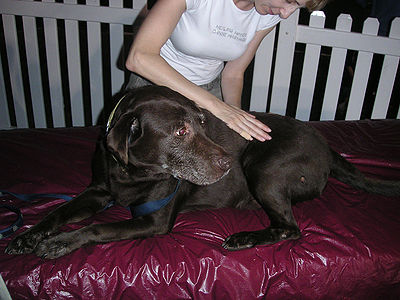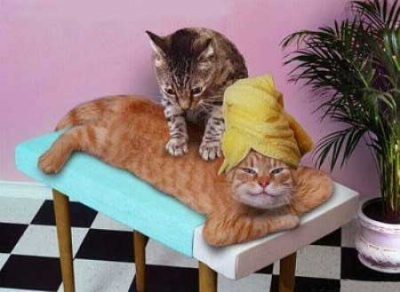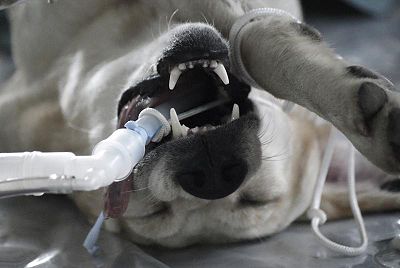There are no quick ways to diagnose gastrointestinal disease in pets. Many diseases and conditions show similar symptoms and have to be ruled out.
Signs of GI problems as well as other conditions can be diarrhea, vomiting, inappetance, weight loss, dehydration.
Your veterinarian will begin the examination by taking a complete history of your pet followed by a thorough physical. The vet will have a number of questions for you such as how long your pet has shown symptoms of a problem, what the symptoms are and their severity.
Your vet will continue with a number of tests including blood tests, a fecal exam and urine specimen. X-rays and an ultrasound may be recommended, particularly if your vet feels an abdominal mass during the exam. If your pet shows signs of dehydration, depending upon the severity, fluids may be administered.
Sometimes GI problems can be solved by a simple change in diet. However, if the problem is ongoing and becomes severe, your vet may suggest one or two options – endoscopy or exploratory surgery.
Endoscopy (a fiberoptic tube is passed through the mouth to the GI tract sending back video images) is performed under anesthesia. While it may not provide a picture of the entire GI tract, it is a less invasive procedure with little risk involved.
Under anesthesia, the risks under exploratory surgery are higher, but give a clearer picture for diagnosis.
My GSD, Quanah, experienced bouts of diarrhea, sometimes severe, every so often. After several vet visits and thorough examinations, nothing turned up. Before putting her through invasive procedures, we decided to change her diet. After trial and error, we found the right foods for her which helped enormously. Quanah’s basic diet consists mainly of a smaller amount of grain-free kibble with one protein ingredient. I add bio yogurt, cooked chicken, a boiled egg and a small amount of cooked veggies. I change the protein source every so often for variety. Chicken and eggs can be the culprit for some pets but this diet has worked for her. If she does have loose stools, I start her on a bland diet of rice and chicken which clears her problem up after a couple of days.
If upon examination, any other problems for your pet have been ruled out, discuss a change in diet with your vet.



